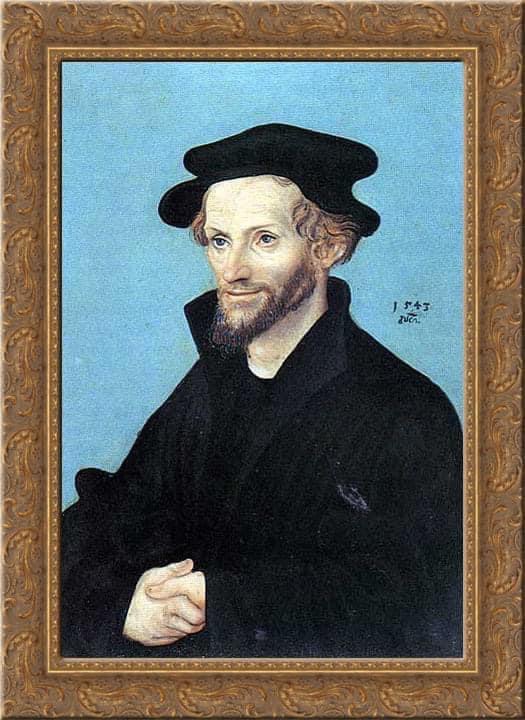
Today the church remembers the Siskel to Luther’s Ebert, the Burt to Luther’s Ernie, the Ginger to Luther’s Fred: Saint Philipp Melanchthon, Reformer, Renewer, and Editor.
Saint Philipp’s true last name is Schwarzerd, and he was born on February 16th at the end of the 15th Century. In Greek, though, his last name is Melanchthon, meaning, “dark earth,” probably a nod to his family’s farming heritage.
Saint Philipp was a great student and a natural talent. By the age of twelve he had already mastered Latin, and by thirteen had Greek under his belt as well. He attended both Heidelberg University and Tubingen where he was awarded a Masters Degree for his studies. He was brilliant, he was a humanist, and eventually he became the first professor of Greek at Wittenberg where he would encounter a grumpy, fiery Martin Luther in the Theology Department.
Luther encouraged Melanchthon to study theology as well as Aristotle, and he eventually started teaching that as well at Wittenberg, proving quite popular with the students. With this outstanding professor roaming its halls, Wittenberg became a leading university in Medieval Europe.
In the fall of 1520 Saint Philipp entered unwittingly into the arena of politics when he married the daughter of Wittenberg’s mayor. Their marriage was both a blessing and included a good bit of tragedy as two of their children died quite young. In this both Saint Philipp and our own Blessed Martin shared a similar heartache. All the same, Saint Philipp and his wife, Katherine, were known to be generous and hospitable to everyone they encountered.
In 1521 Saint Philipp published his Loci Communes, the first compilation of Lutheran doctrine ever assembled. But Saint Philipp was not only interested in theology. With Luther’s help, Saint Philipp would go on to tackle social issues in Germany, reorganizing schools and championing public education. It was Saint Philipp who would take the lead in the development of elementary and secondary education, making the study of the classics as the bedrock of public schooling.
Saint Philipp was often called upon to make appearances at debates and meetings where he would draft reports, refutations, and articles of reconciliation. He was a master writer and had a way of tempering Luther’s often bombastic treatises.
Saint Philipp never entered the priesthood, but rather played the important role of invested layperson. He died in Wittenberg just three years after his beloved Katherine in 1560. He is remembered on this day because today is the anniversary of the Presentation of the Augsburg Confession, the founding document of the Reformation. Melanchthon’s influence and pen is all over that document, and he presented it to Emperor Charles V at 3pm at his diet to settle religious controversies because Luther had already been excommunicated.
Saint Philipp is a reminder for me, and should be for the whole church, that every endeavor is a team effort. Luther would not have gotten far without Saint Philipp, who quietly, brilliantly, created the road on which the Reformation trod.
-historical bits from Pfatteicher’s New Book of Festivals & Commemorations
